Find Help
More Items From Ergsy search
-
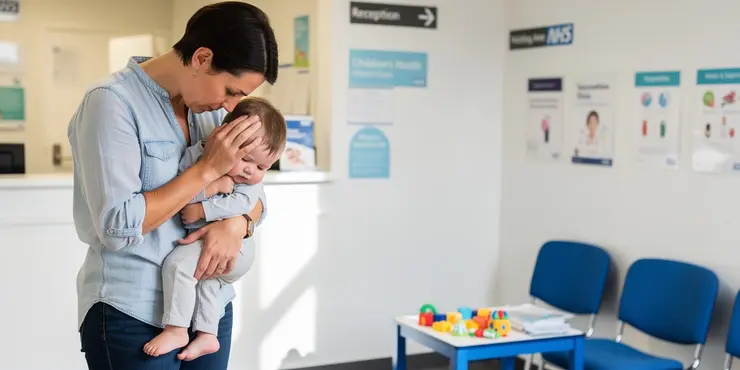
How do I treat my child's cold? (9 - 30 months) | NHS
Relevance: 100%
-
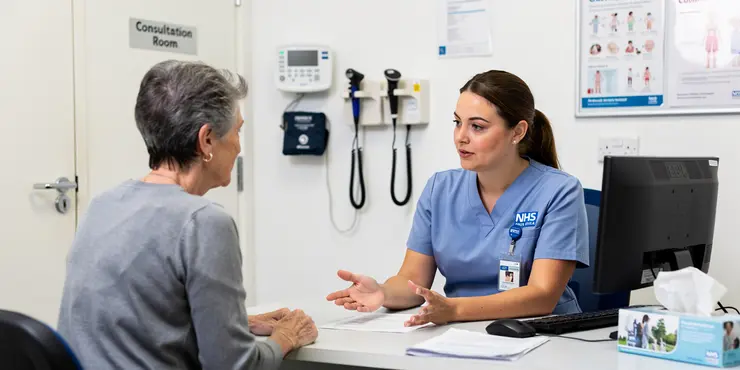
How to Treat a Common Cold
Relevance: 55%
-
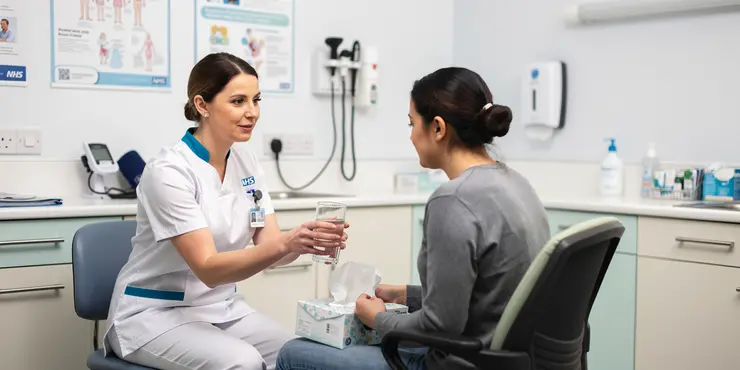
How to treat a cold | NHS
Relevance: 52%
-

How can I treat a cold at home?
Relevance: 52%
-
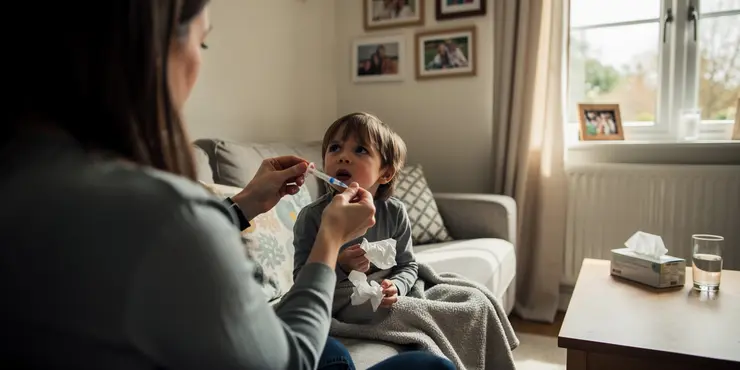
Can children take the same cold medications as adults?
Relevance: 45%
-
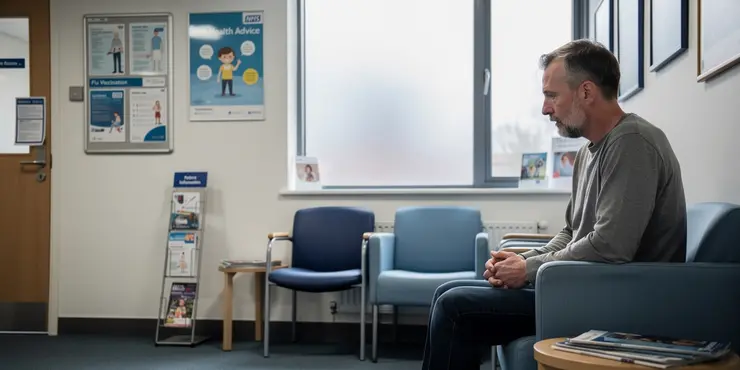
Should I see a doctor for a cold?
Relevance: 44%
-
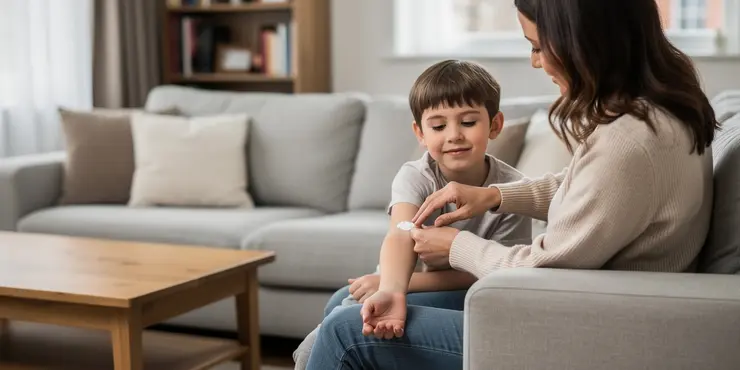
Managing and treating your child's eczema
Relevance: 44%
-
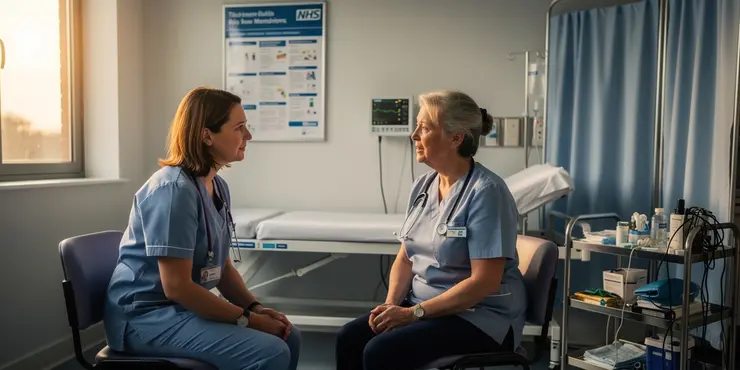
Can cold weather cause a cold?
Relevance: 43%
-
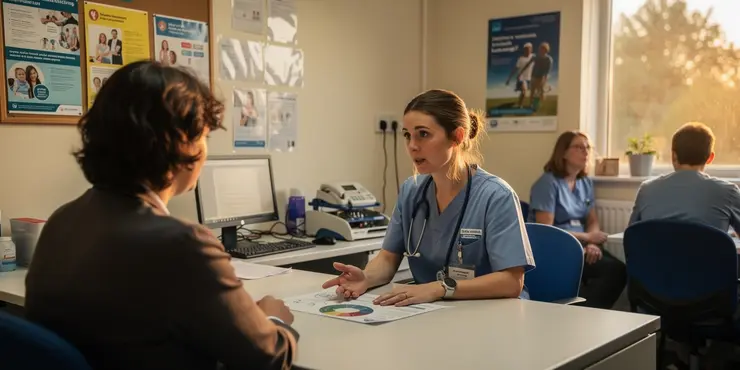
What is the best way to treat a sore throat from a cold?
Relevance: 42%
-
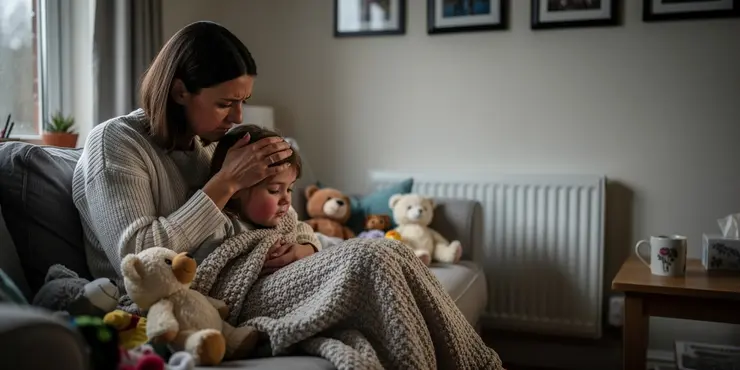
Advice if your child has... A High temperature
Relevance: 41%
-
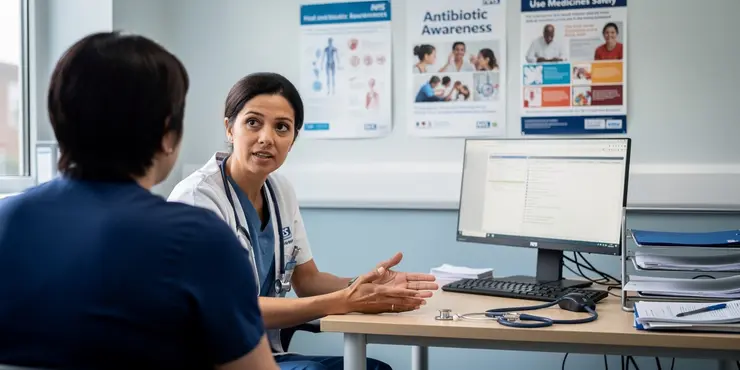
Can I take antibiotics for a cold?
Relevance: 40%
-

Is there a cure for cold sores?
Relevance: 38%
-
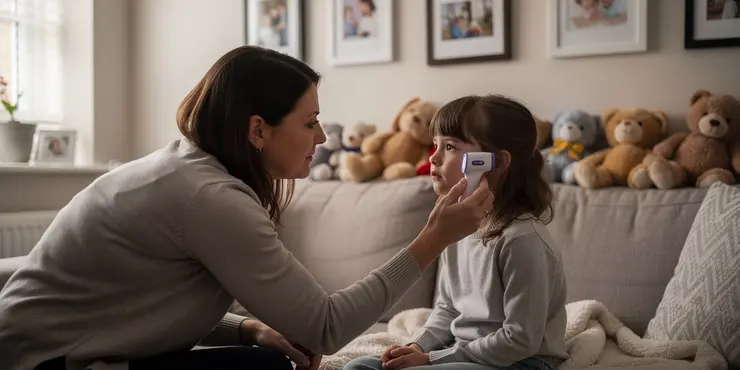
Caring for a child with fever | NHS
Relevance: 38%
-
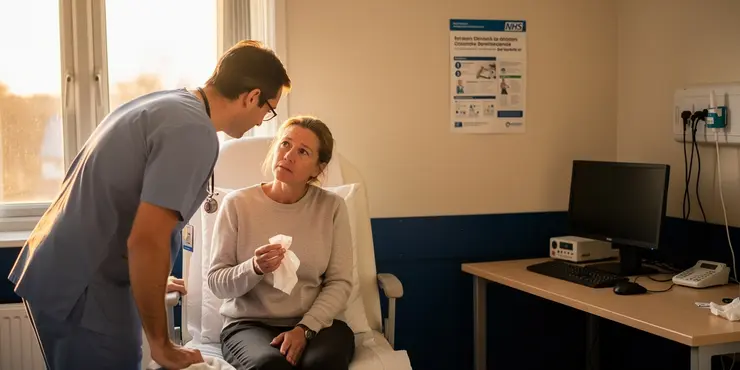
What are the common symptoms of a cold?
Relevance: 37%
-
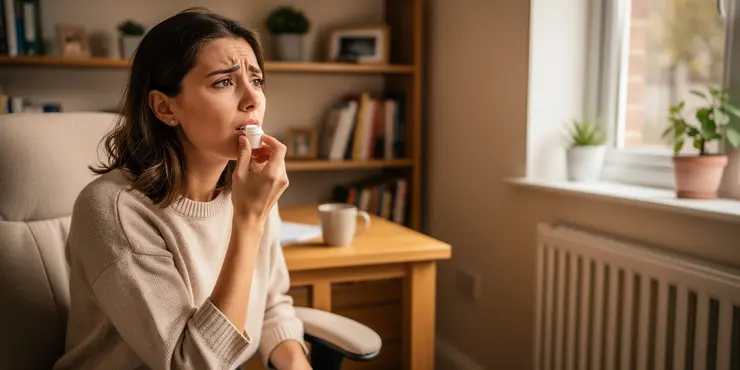
How long do cold sores last?
Relevance: 37%
-
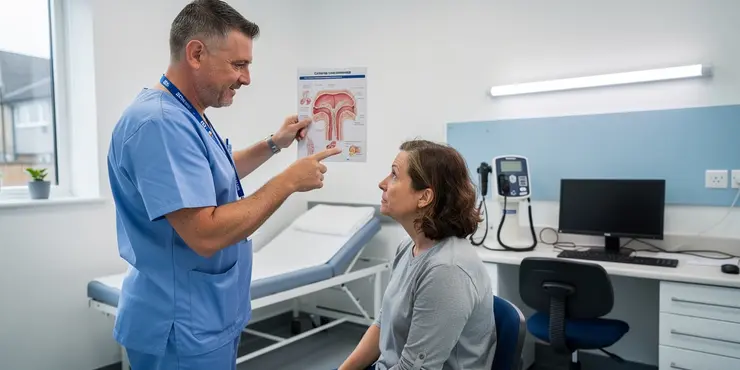
What are Cold Sores?
Relevance: 36%
-
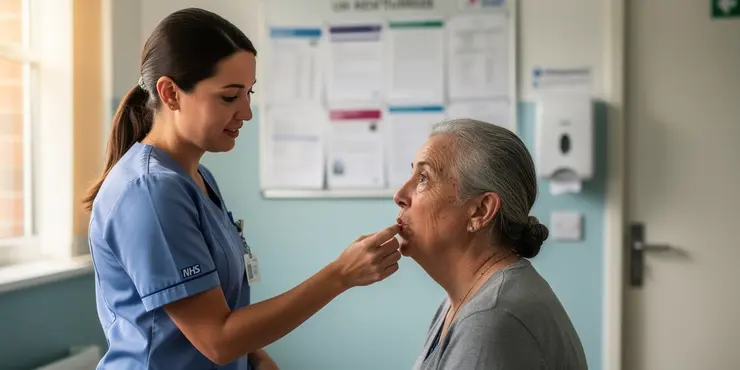
Are cold sores contagious?
Relevance: 36%
-
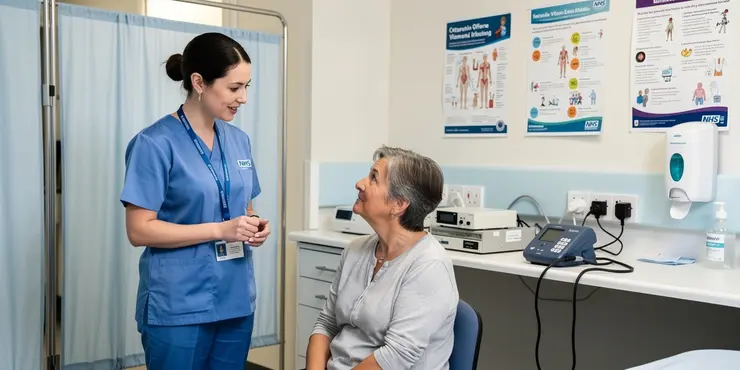
Is Vitamin C effective against colds?
Relevance: 35%
-
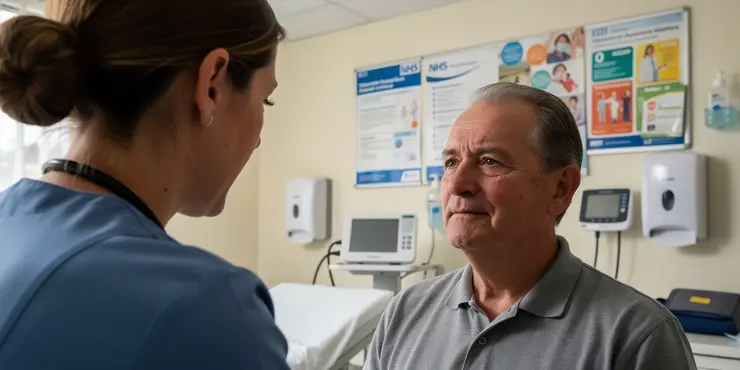
What causes cold sores?
Relevance: 35%
-
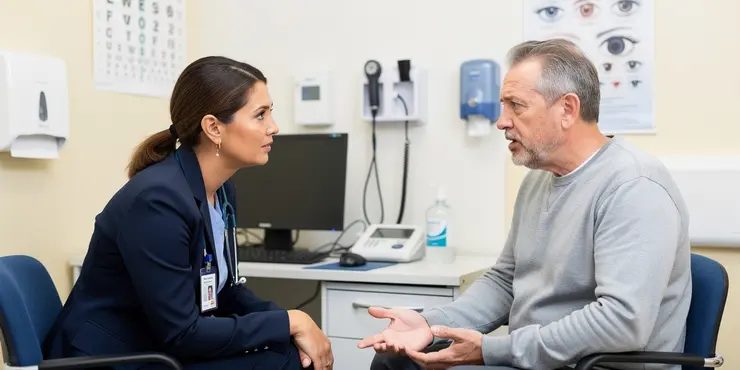
Can I use a humidifier to help with my cold symptoms?
Relevance: 34%
-
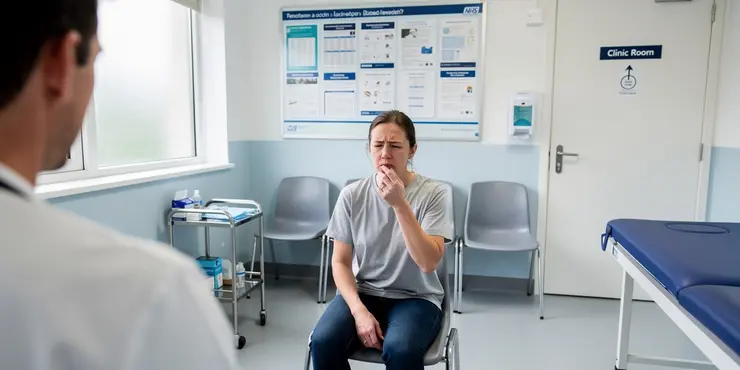
What are the symptoms of a cold sore?
Relevance: 34%
-

How long does a common cold typically last?
Relevance: 34%
-
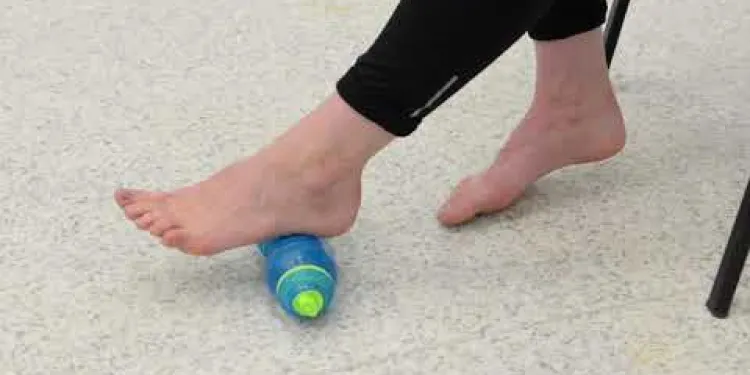
Plantar Fascia Cold Therapy
Relevance: 34%
-
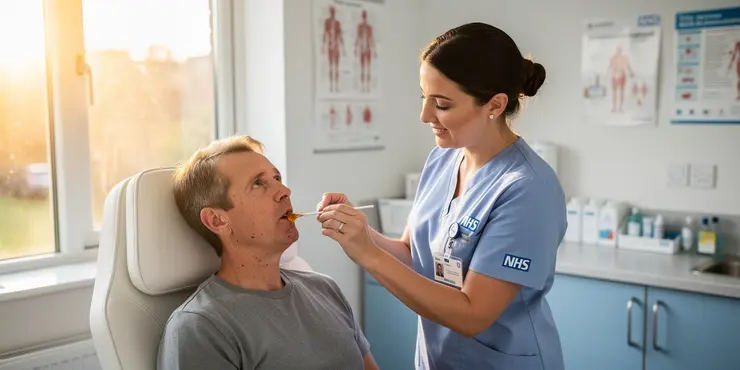
Honey 'as good as antiviral creams' for cold sores | NHS Behind the Headlines
Relevance: 34%
-
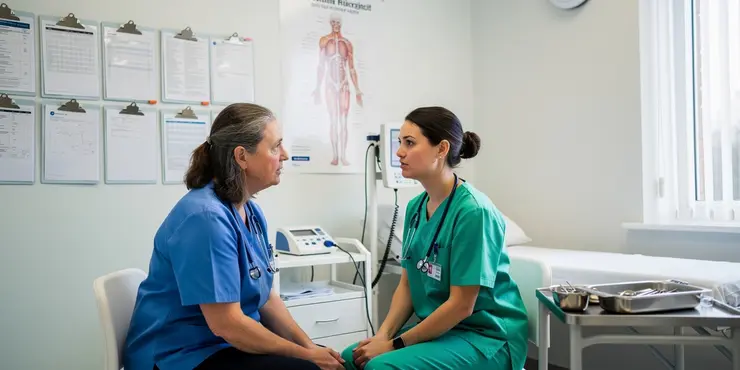
Is there a way to cure a cold quickly?
Relevance: 34%
-
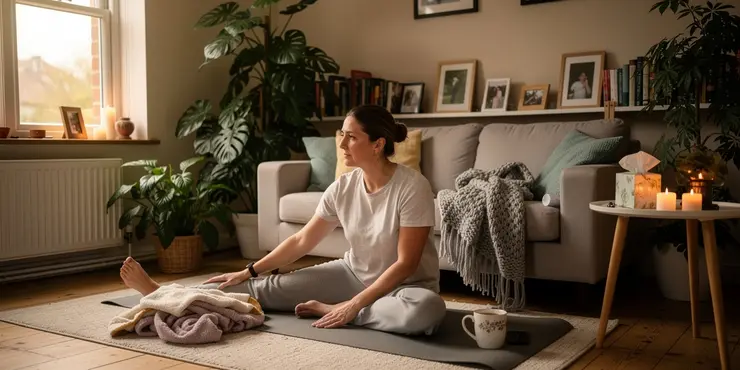
Is it safe to exercise with a cold?
Relevance: 34%
-
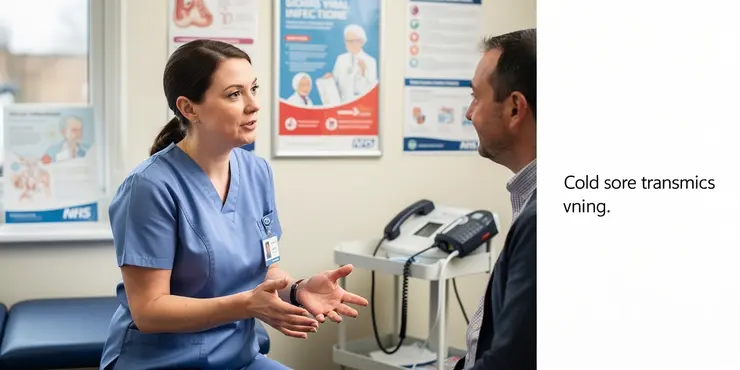
How are cold sores transmitted?
Relevance: 34%
-
Can orange juice help prevent colds?
Relevance: 34%
-
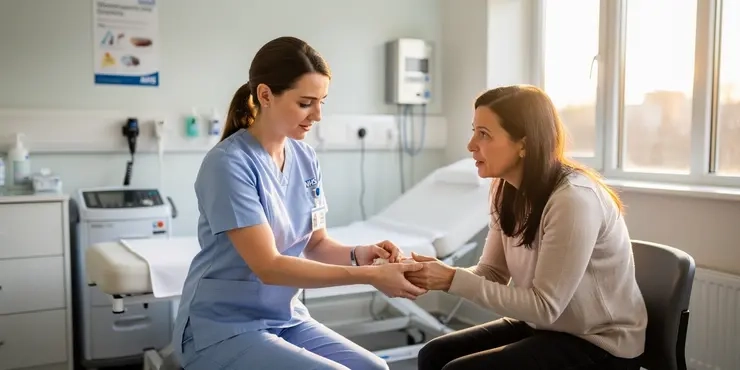
How do I deal with burns and scalds? (9 to 30 months) | NHS
Relevance: 34%
-

What triggers a cold sore outbreak?
Relevance: 33%
-
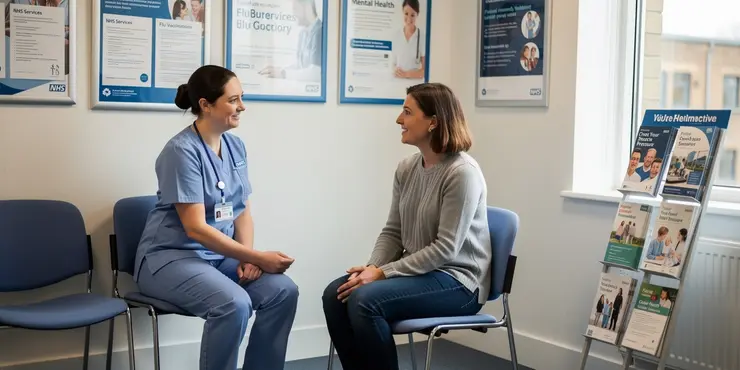
Can I receive the Warm Home Discount and Cold Weather Payment?
Relevance: 33%
-

How can I prevent cold sores?
Relevance: 33%
-
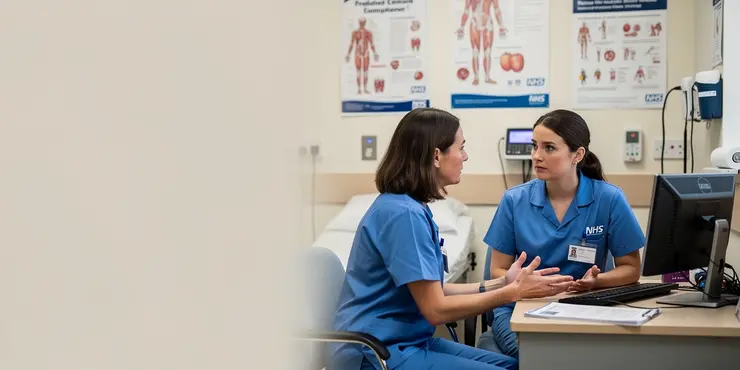
Is it safe to take cold showers during a heatwave?
Relevance: 32%
-
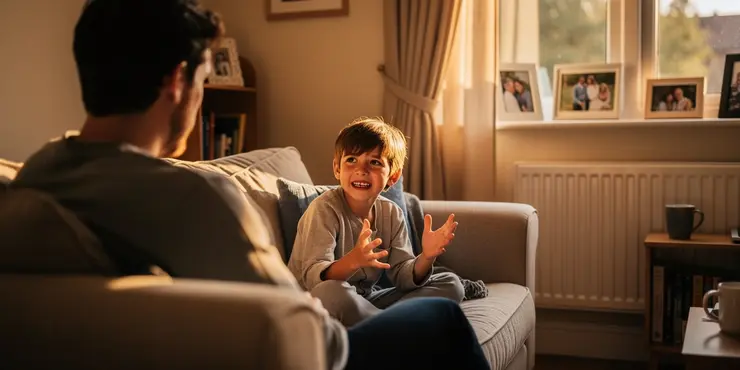
My Stammering Child
Relevance: 32%
-

What should you do if you have a cough or cold?
Relevance: 32%
-
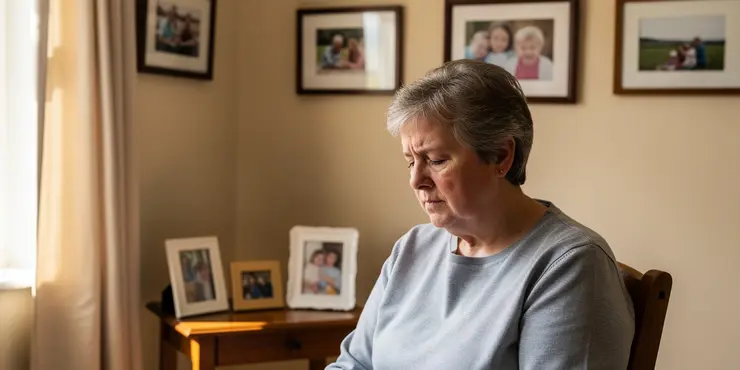
Child Bereavement
Relevance: 32%
-
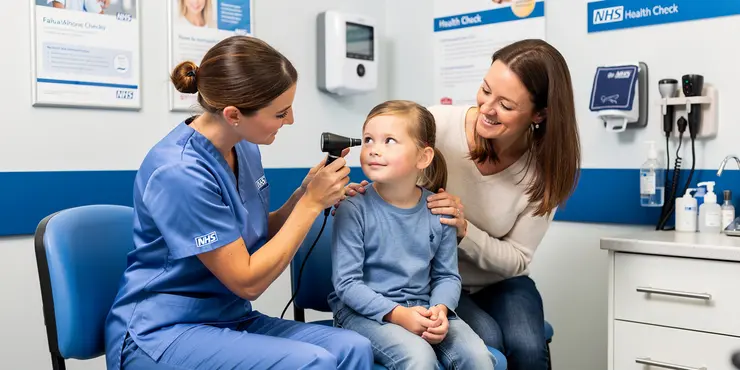
How to treat earache | NHS
Relevance: 30%
-
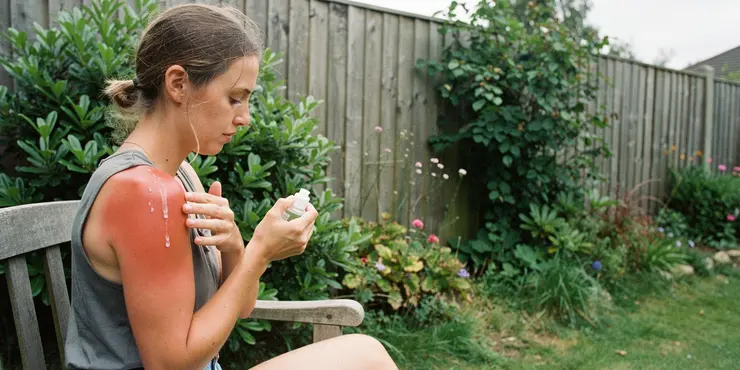
How is sunburn treated?
Relevance: 30%
-
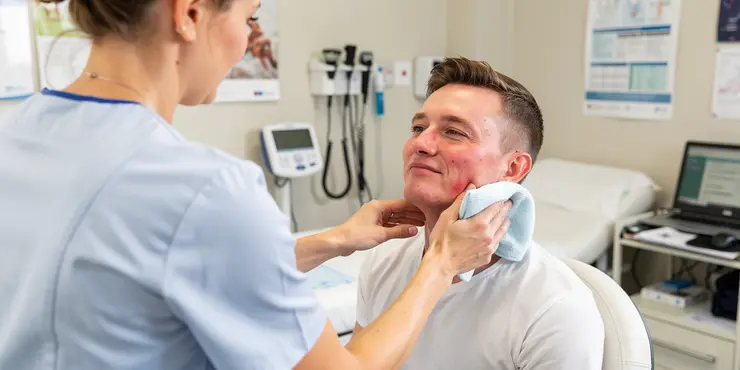
Is it okay to use ice packs or cold showers to cool down?
Relevance: 29%
-
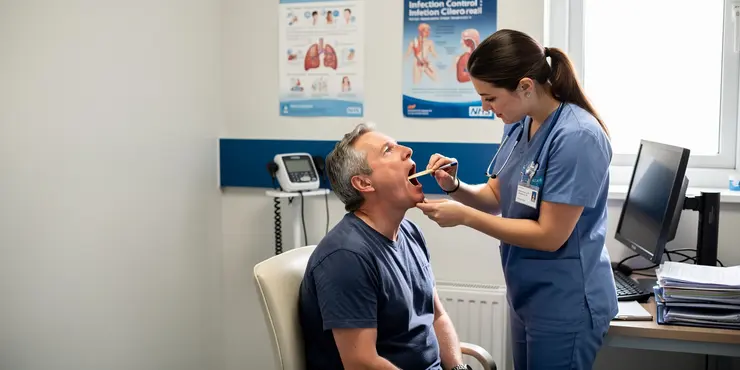
Treating a sore throat
Relevance: 29%
How do I treat my child's cold? (9 - 30 months) | NHS
Recognising Symptoms
In children aged 9 to 30 months, common cold symptoms include a runny or blocked nose, sneezing, a cough, and sometimes a mild fever. These symptoms usually start gradually and can last for about a week to ten days. It's important to distinguish between a common cold and more serious conditions. If your child has difficulty breathing, a high fever, or seems unusually tired, consult a healthcare professional immediately.Hydration is Key
Keeping your child well-hydrated is crucial. Offer plenty of fluids, such as water, breast milk, or formula. For older toddlers, you can introduce clear soups and diluted fruit juices. Hydration helps to thin mucus secretions and prevents dehydration, which can be a concern, especially if your child is also experiencing diarrhoea or vomiting.Comfort and Rest
Encourage your child to rest as much as possible. A comfortable environment with plenty of sleep will help their body fight the virus. Use pillows to prop them up slightly to ease breathing while they rest. Additionally, maintain a calm and quiet atmosphere to ensure they can rest without disturbances.Use a Humidifier
Adding moisture to the air with a humidifier can make a big difference. It helps to relieve a stuffy nose and can make breathing more comfortable. Ensure the humidifier is clean and placed safely out of your child's reach. An alternative is to sit in a steamy bathroom with your child for a few minutes.Over-the-Counter Medications
For children over 6 months, paracetamol or ibuprofen can be given to relieve pain and reduce fever, always following the correct dosage instructions. Do not give your child any medication containing aspirin or over-the-counter cold remedies, as they may not be safe for young children.Saline Drops and Suction Bulbs
Saline nasal drops can help to loosen nasal mucus, making it easier to clear. Follow the instructions provided with the saline drops. After a few minutes, use a suction bulb to gently remove the loosened mucus from your child’s nose. This can be particularly helpful before feedings and sleep times.When to Seek Medical Advice
If your child's symptoms persist beyond 10 days, or if they exhibit signs such as trouble breathing, high fever, not feeding, signs of dehydration (like fewer wet nappies), or if you have any other concerns, contact your GP or NHS 111 for advice. It’s always better to err on the side of caution when it comes to your child’s health.Preventing Future Colds
Although it's challenging to prevent common colds entirely, frequent handwashing, avoiding close contact with sick individuals, and keeping your child's toys and household surfaces clean can minimise the risk. Encourage older siblings and family members to practice good hygiene to protect the younger ones. These guidelines are intended for parents in the United Kingdom and align with NHS recommendations. As always, consult your healthcare provider for personalised medical advice regarding your child's health.How do I treat my child's cold? (9 - 30 months) | NHS
Recognizing the Signs
Kids aged 9 to 30 months can get a cold with a runny or blocked nose, sneezing, coughing, and sometimes a mild fever. These signs start slowly and last about a week to ten days. Know when it's just a cold and not something more serious. If your child can't breathe well, has a high fever, or is very tired, see a doctor right away.Drinking Lots of Fluids
Make sure your child drinks enough. Give them water, breast milk, or formula. Older toddlers can have clear soups and watered-down fruit juices. Drinking fluids thins mucus and stops dehydration, especially if they have diarrhoea or are vomiting.Rest and Comfort
Help your child rest a lot. A comfy place and extra sleep help them get better. Use pillows to slightly raise their head to help them breathe while resting. Keep things calm and quiet so they can sleep well.Add Moisture with a Humidifier
Use a humidifier to add moisture to the air. This can help with a stuffy nose and make it easier to breathe. Make sure the humidifier is clean and out of reach of children. You can also sit in a steamy bathroom with your child for a short time.Medicine for Pain and Fever
Children over 6 months can have paracetamol or ibuprofen for pain and fever. Always follow instructions for the right dose. Never give them aspirin or cold medicines from the store, as they can be unsafe for young kids.Saline Drops and Suction Bulbs
Saline nasal drops can help clear mucus. Follow the instructions for using the drops. After a few minutes, use a suction bulb to gently remove the loosened mucus. This helps before eating and sleeping.When to Get Help
See a doctor if symptoms last more than 10 days, or if your child has trouble breathing, high fever, won’t eat, shows signs of dehydration (like fewer wet nappies), or if you worry about anything else. Contact your GP or NHS 111 for advice.Stopping More Colds
You can't stop all colds, but washing hands often, not being close to sick people, and keeping toys and surfaces clean can help. Teach older siblings and family to be clean to keep little ones safe. These tips are for parents in the UK and follow NHS advice. Always talk to your doctor for personal medical help about your child's health.Frequently Asked Questions
What are the common symptoms of a cold in a 9-30 month old child?
Common symptoms include a runny or blocked nose, sneezing, coughing, sore throat, and sometimes a mild fever.
How can I help alleviate my child's cold symptoms at home?
Ensure they get plenty of rest, keep them hydrated with water, breast milk, or formula, and use saline nasal drops to help clear their nose.
Can I give my child over-the-counter cold medicines?
It's generally not recommended to give over-the-counter cold medicines to children under 6 years old without consulting a doctor.
What should I do if my child has a fever?
You can give them infant paracetamol or ibuprofen to help reduce fever and relieve discomfort, but always follow the dosage instructions on the packaging.
How can I keep my child's room comfortable when they have a cold?
Keep their room warm, but not too hot, and use a humidifier or place a bowl of water near a radiator to keep the air moist.
When should I seek medical advice for my child’s cold?
You should seek medical advice if your child has difficulty breathing, is not drinking fluids, has a persistent high fever, or if their symptoms worsen.
Is it safe to use vapor rubs on my child?
Avoid using vapor rubs on children under 2 years old as they can cause irritation and breathing problems.
Can I use honey to soothe my child's cough?
Honey should not be given to children under 1 year old due to the risk of botulism.
How can I prevent my child from catching colds in the future?
Practicing good hygiene, such as regular handwashing and keeping them away from sick individuals, can help reduce the risk of catching a cold.
Can cold weather cause my child to catch a cold?
Cold weather itself doesn't cause colds, but viruses spread more easily in colder months when people spend more time indoors.
Should I keep my child at home if they have a cold?
Yes, keeping them at home helps prevent spreading the virus to other children and allows them to rest and recover.
Is it normal for my child to lose their appetite when they have a cold?
Yes, it is common for children to have a reduced appetite when they are unwell. Encourage them to drink fluids and offer small, nutritious meals.
Can I use essential oils to help my child with a cold?
Some essential oils, like eucalyptus or peppermint, should be used with caution and never applied directly to a child’s skin. Consult with a healthcare provider first.
Are probiotics helpful in treating a child's cold?
Some studies suggest probiotics may help reduce the duration and severity of colds, but more research is needed. Consult with a healthcare provider for advice.
Can breastfeeding help my child recover from a cold?
Breastfeeding provides essential nutrients and antibodies that can help support your child’s immune system during a cold.
What are the usual signs of a cold in a child aged 9-30 months?
A cold is when you feel sick. Here are signs to look for:
- Runny or stuffy nose
- Cough
- Sneezing
- Fever (feeling hot)
- Not wanting to eat
- Feeling sleepy
If your child is sick, help them feel better:
- Give them lots of water to drink
- Let them rest
- Keep them warm
If you are worried, talk to a doctor.
When you feel sick, you might have:
- A runny or stuffy nose
- Sneezing
- Coughing
- A sore throat
- Sometimes, a little fever
If you find it hard to read or understand, try using these tips:
- Ask someone to read it with you
- Use a ruler or your finger to keep your place
- Look at any pictures or drawings to help
How can I make my child feel better when they have a cold at home?
If your child has a cold, you can help them feel better with a few simple things:
- Rest: Let your child rest as much as they can. Rest helps the body fight the cold.
- Drink Lots: Give your child plenty of water or juice. This helps keep them hydrated.
- Stay Warm: Make sure your child wears warm clothes and is cozy. This helps them feel comfortable.
- Humidifier: Use a humidifier in their room. It adds moisture to the air and can help them breathe easier.
- Soup or Warm Drinks: Give them warm soup or tea. This can soothe their throat.
These simple steps can help your child feel better. If you're worried, talk to a doctor.
Make sure they get lots of sleep. Give them water, breast milk, or formula to drink. Use saline nose drops to help them breathe better.
Can I give my child medicine for a cold without a doctor's prescription?
Do not give cold medicine to kids under 6 years old without asking a doctor first.
What to Do if Your Child Has a Fever
You can give them medicine like paracetamol or ibuprofen that is safe for babies. This helps bring down a fever and makes them feel better. Always read the instructions on the box to know how much to give.
How can I make my child's room comfortable when they have a cold?
Here are some easy tips:
- Keep the room warm but not too hot.
- Use a humidifier to keep the air moist.
- Give your child plenty of blankets to stay cozy.
- Make sure they have tissues nearby.
- Use a nightlight if they need to wake up at night.
Ask your child if they need anything else to feel better.
Make sure the room is warm, but not too hot. You can use a humidifier or put a bowl of water near a heater to keep the air wet.
When should I talk to a doctor about my child's cold?
If your child has a cold, watch them closely to see if they get better. But sometimes, you need to talk to a doctor. Here are some signs that you should.
- Your child has a high fever or a fever that won't go away.
- They are having trouble breathing or are breathing very fast.
- Your child looks very tired or very fussy all the time.
- They have pain in their ears.
- The cold lasts more than 10 days without getting better.
These are signs you need to call or see a doctor. A doctor can help your child feel better.
You should talk to a doctor if your child:
- Has trouble breathing.
- Is not drinking water or other drinks.
- Has a fever that won't go away.
- Is getting sicker.
You can use tools like picture books or videos to help explain these things to your child.
Can I use vapor rubs on my child safely?
Do not use vapor rubs on children younger than 2 years old. It can make them feel itchy and cause problems with their breathing.
Can I use honey to help my child's cough feel better?
If your child is coughing, you might use honey to help. Honey can make a sore throat feel better. But remember:
- Do not give honey to babies under 1 year old. It can make them sick.
- For older children, just a small spoon of honey can help.
- Try giving warm drinks with honey to help soothe their throat.
Always check with a doctor if you are unsure.
Do not give honey to babies who are less than 1 year old. It is not safe because it can make them very sick.
How can I stop my child from getting sick with colds?
Washing hands often and staying away from people who are sick can help stop you from getting a cold.
Can my child get sick from cold weather?
Sometimes, people think cold weather makes you sick. It can feel chilly outside, and your nose might run, but the cold weather itself does not cause a cold. Colds are caused by germs called viruses.
To help keep your child healthy:
- Make sure they wash their hands often.
- Wear warm clothes to stay cozy.
- Eat healthy foods and drink lots of water.
If your child feels sick, let them rest and see a doctor if needed.
Cold weather does not make you sick. But, people can get sick more in winter. This is because they stay indoors more where it is easier for germs to spread.
Should I keep my child at home if they have a cold?
If your child has a cold, you might wonder if they should stay at home.
Here are some things to think about:
- Is your child too sick to go to school?
- Do they feel very bad or have a fever?
- If they stay at home, can they rest and get better?
- Will other kids get sick if your child goes to school?
Ask a doctor or nurse for help if you are not sure.
Some tools to help you decide:
- Talk with the child's teacher or school nurse.
- Use health websites made for families.
Remember, it is important for your child to feel better.
Yes, keeping them at home stops them from giving the virus to other children. It also lets them rest and get better.
Is it okay if my child does not feel hungry when they have a cold?
It is common for children to not feel like eating when they are sick with a cold.
Here are some tips to help:
- Give them plenty of fluids like water or juice.
- Offer small snacks instead of big meals.
- Let them eat things they like, even if it's just a little bit.
If you are worried, talk to a doctor for help.
Yes, when kids are sick, they often don’t feel like eating much. Make sure they drink lots of water or juice, and give them small, healthy meals.
Can I use essential oils to help my child with a cold?
Is it okay to use essential oils to help my child feel better when they have a cold?
Essential oils are strong smells from plants. Some people think they can help with colds.
Here are some ideas to help:
- Ask a doctor before using essential oils on children.
- You can use a diffuser to spread the smell in the room.
- Never put oils on the child's skin without mixing them with something safe first.
- Keep oils away from the child’s mouth and eyes.
Some oils can be used safely, but always check with an adult or a doctor first!
Some oils, like eucalyptus or peppermint, can be strong. Never put them straight on a child's skin. Always ask a doctor or nurse first.
Do probiotics help a child with a cold?
Probiotics are good germs. They may help the tummy.
Sometimes, they can help with a cold. But not always.
Ask a doctor before you give them to a child.
To help a child with a cold, also try:
- Giving them lots of water to drink.
- Letting them rest and sleep.
- Keeping them warm.
- Using a tissue for their nose.
Some studies show that probiotics might help make colds shorter and less bad. But, we need to learn more about this. Talk to a doctor or nurse for help.
Can breastfeeding help my child feel better from a cold?
If your child has a cold, breastfeeding can help them get better. Breast milk has special things that help fight germs. It is also comforting for your child.
To help your child, you can also:
- Make sure they drink lots of fluids.
- Let them rest and sleep.
- Keep them warm and cozy.
If you are worried about your child’s cold, talk to a doctor. Doctors can give you more help and advice.
Breastfeeding gives your baby important things they need to grow strong and healthy. It also helps them fight germs when they have a cold.
Useful Links
This website offers general information and is not a substitute for professional advice.
Always seek guidance from qualified professionals.
If you have any medical concerns or need urgent help, contact a healthcare professional or emergency services immediately.
Some of this content was generated with AI assistance. We’ve done our best to keep it accurate, helpful, and human-friendly.
- Ergsy carfully checks the information in the videos we provide here.
- Videos shown by Youtube after a video has completed, have NOT been reviewed by ERGSY.
- To view, click the arrow in centre of video.
- Most of the videos you find here will have subtitles and/or closed captions available.
- You may need to turn these on, and choose your preferred language.
- Go to the video you'd like to watch.
- If closed captions (CC) are available, settings will be visible on the bottom right of the video player.
- To turn on Captions, click settings .
- To turn off Captions, click settings again.
More Items From Ergsy search
-

How do I treat my child's cold? (9 - 30 months) | NHS
Relevance: 100%
-

How to Treat a Common Cold
Relevance: 55%
-

How to treat a cold | NHS
Relevance: 52%
-

How can I treat a cold at home?
Relevance: 52%
-

Can children take the same cold medications as adults?
Relevance: 45%
-

Should I see a doctor for a cold?
Relevance: 44%
-

Managing and treating your child's eczema
Relevance: 44%
-

Can cold weather cause a cold?
Relevance: 43%
-

What is the best way to treat a sore throat from a cold?
Relevance: 42%
-

Advice if your child has... A High temperature
Relevance: 41%
-

Can I take antibiotics for a cold?
Relevance: 40%
-

Is there a cure for cold sores?
Relevance: 38%
-

Caring for a child with fever | NHS
Relevance: 38%
-

What are the common symptoms of a cold?
Relevance: 37%
-

How long do cold sores last?
Relevance: 37%
-

What are Cold Sores?
Relevance: 36%
-

Are cold sores contagious?
Relevance: 36%
-

Is Vitamin C effective against colds?
Relevance: 35%
-

What causes cold sores?
Relevance: 35%
-

Can I use a humidifier to help with my cold symptoms?
Relevance: 34%
-

What are the symptoms of a cold sore?
Relevance: 34%
-

How long does a common cold typically last?
Relevance: 34%
-

Plantar Fascia Cold Therapy
Relevance: 34%
-

Honey 'as good as antiviral creams' for cold sores | NHS Behind the Headlines
Relevance: 34%
-

Is there a way to cure a cold quickly?
Relevance: 34%
-

Is it safe to exercise with a cold?
Relevance: 34%
-

How are cold sores transmitted?
Relevance: 34%
-
Can orange juice help prevent colds?
Relevance: 34%
-

How do I deal with burns and scalds? (9 to 30 months) | NHS
Relevance: 34%
-

What triggers a cold sore outbreak?
Relevance: 33%
-

Can I receive the Warm Home Discount and Cold Weather Payment?
Relevance: 33%
-

How can I prevent cold sores?
Relevance: 33%
-

Is it safe to take cold showers during a heatwave?
Relevance: 32%
-

My Stammering Child
Relevance: 32%
-

What should you do if you have a cough or cold?
Relevance: 32%
-

Child Bereavement
Relevance: 32%
-

How to treat earache | NHS
Relevance: 30%
-

How is sunburn treated?
Relevance: 30%
-

Is it okay to use ice packs or cold showers to cool down?
Relevance: 29%
-

Treating a sore throat
Relevance: 29%


